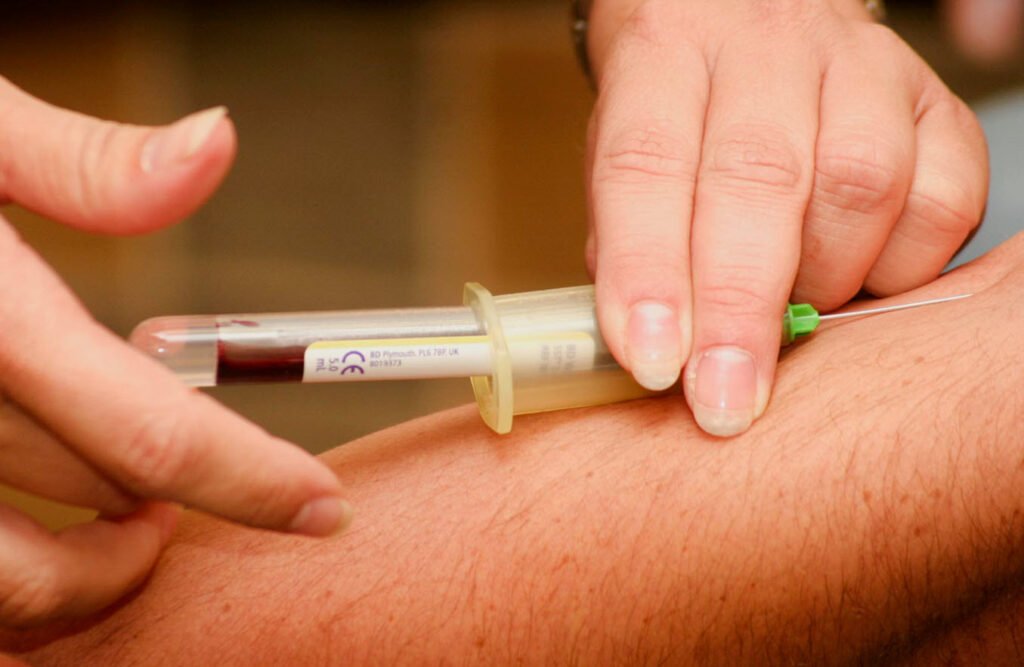
Regular blood tests are an essential part of monitoring your overall health and well-being. They can provide valuable insights into various aspects of your body’s functioning, helping you and your healthcare provider identify potential health issues and make informed decisions about your lifestyle and treatment options. When it comes to cardiovascular health, specific blood tests can be particularly important in assessing your risk of heart disease and stroke.
In this article, we will discuss some of the most recommended blood tests for cardiovascular health.
Routine Blood Tests
1. CBC (Complete Blood Count): A complete blood count measures various components of your blood, including red and white blood cells, platelets, hemoglobin, and hematocrit levels. Red blood cells are responsible for carrying oxygen to your body’s cells, while white blood cells play a vital role in your immune system. Platelet count is essential to prevent bleeding or clotting issues.
Imbalances in these blood components can indicate underlying health problems, and addressing them can help reduce the risk of cardiovascular complications.
2. Chemistry Panel: A chemistry panel assesses several factors in your blood, including blood glucose (sugar), electrolytes (calcium, potassium, and sodium), blood urea nitrogen, creatinine (kidney function), transaminase levels, and bilirubin (liver function).
This panel can uncover a wide range of disorders, such as diabetes, kidney or liver issues, or electrolyte imbalances, all of which can affect heart and vascular function and increase the risk of heart attacks and strokes.
3. Thyroid Function Panel: This panel measures thyroid-stimulating hormone (TSH), T4, and T3 levels in the blood. Thyroid disorders can impact heart health, with low thyroid levels raising cholesterol levels and elevated thyroid levels potentially leading to palpitations and cardiac arrhythmias.
4. Lipid Profile: A lipid profile assesses total cholesterol, LDL (bad) cholesterol, HDL (good) cholesterol, and triglyceride levels in the blood. Elevated LDL cholesterol or reduced HDL cholesterol increases the risk of heart attacks, while nonfasting triglyceride levels have been shown to raise heart attack risk.
Advanced Cardiovascular Blood Tests
1. hs-CRP: This test measures high-sensitivity C-reactive protein (hs-CRP) in the blood, a marker of vascular inflammation associated with an increased risk of heart attacks and strokes.
2. Lp-PLA2: Measures Lp-PLA2 in the blood, a more specific marker of vascular inflammation than hs-CRP. Combining these tests provides a more predictive assessment of heart attack and stroke risk than using either test individually.
3. Myeloperoxidase: Measures myeloperoxidase in the blood, a marker of free radicals and oxidative stress. Elevated levels of myeloperoxidase increase the risk of plaque instability and double the risk of heart attacks.
4. ApoB and ApoA1: ApoB measures the total number of bad cholesterol-carrying particles in the blood, while ApoA1 measures the total number of cholesterol-carrying HDL (good) particles in the blood. High ApoB levels predict a greater heart attack risk, while high ApoA1 levels are associated with a lower risk of heart attacks. The ApoB : ApoA1 ratio is a powerful predictor of heart attack risk.
5. LDL-P: Measures the number of LDL cholesterol particles in the blood, with 90% of atherogenic particles that can enter artery walls being LDL particles. LDL-P is a more accurate predictor of heart attack risk than total cholesterol or LDL-cholesterol levels.
6. Particle Size: Measures the size of lipoprotein particles, such as LDL and HDL particles. Small LDL particles are more likely to enter artery walls and become trapped and oxidized, contributing to atherosclerotic plaque development. Particle size can also provide insights into conditions like insulin resistance and metabolic syndrome.
7. LPa (Lipoprotein(a)): Measures the amount of lipoprotein(a) in the blood, which is associated with an increased risk of heart attacks and strokes.
8. Omega-3 Index: Measures the percentage of omega-3 fats in red blood cell membranes. Low levels are associated with an increased risk of heart attacks and sudden cardiac death. Raising omega-3 levels through diet or supplements can help reduce cardiovascular risk.
9. Vitamin D: Measures the level of vitamin D in the blood. Low levels are linked to an increased risk of heart attacks. Correcting vitamin D deficiency can lower heart attack risk.
In conclusion, these recommended blood tests play a crucial role in assessing and managing cardiovascular health. Regular monitoring and discussions with your healthcare provider can help you identify potential risk factors and make informed decisions to protect your heart and vascular system. By staying proactive about your cardiovascular health, you can reduce the risk of heart disease and enjoy a healthier, more active life.
You may also like:- Can You Take Calcium and Vitamin D Supplements Together? Read Here
- Taking Control Of Your Hormonal Health: What To Expect From An HRT Clinic
- Strategies for Making Physical Activities Accessible for Children with Special Needs
- ICMR’s Advisory on Tea and Coffee Consumption
- 10 Healthy Tips for World Health Day 2024
- Headache Danger Signals – A Comprehensive Guide
- Commonly Used Drug Dosages for Pain
- Key Responsibilities and Duties of a Doctor
- Personalized Support For Every Family: The Specialized Training Of Lactation Consultants
- Why Does A Person Sleepwalk At Night?








